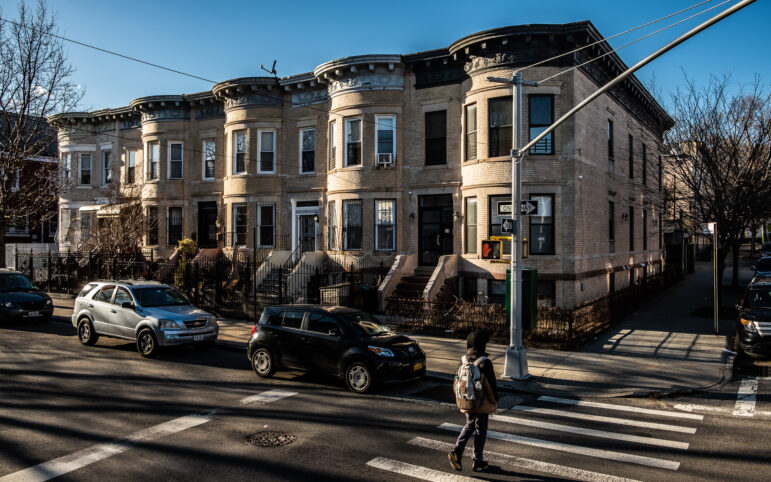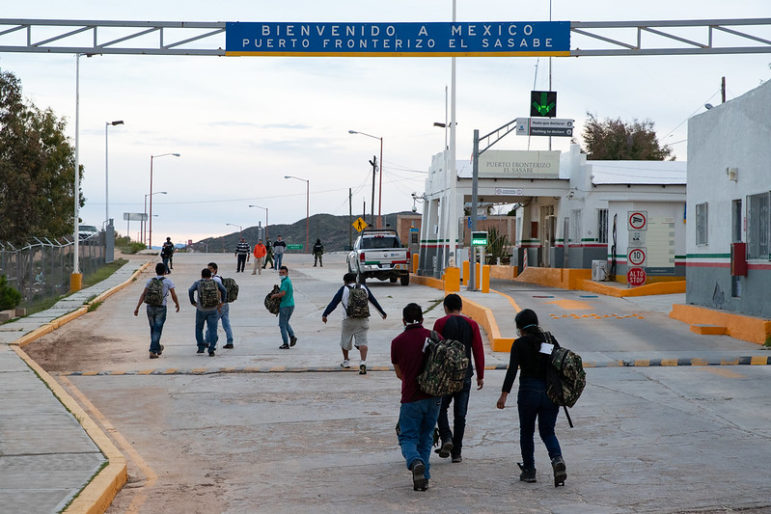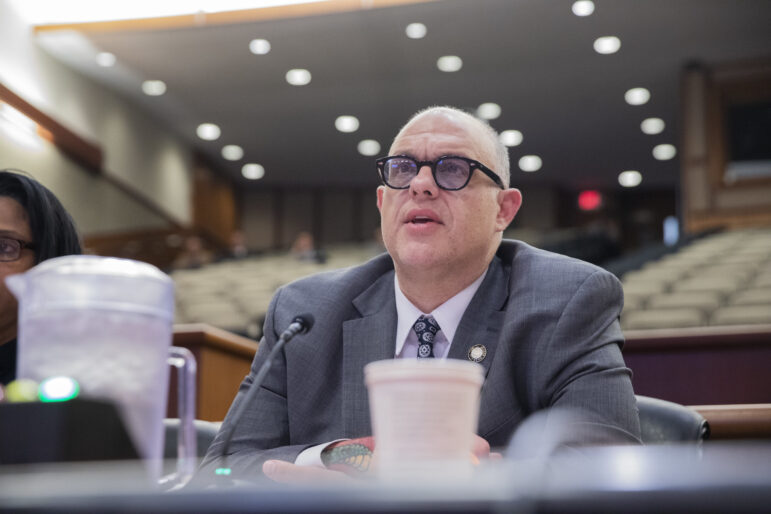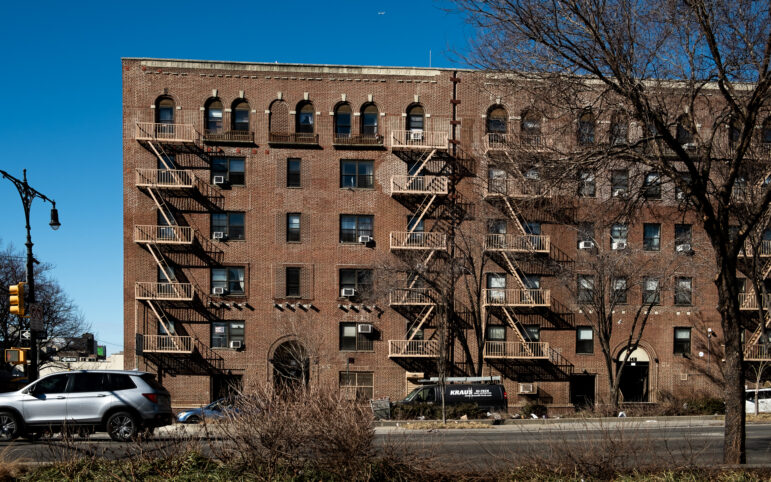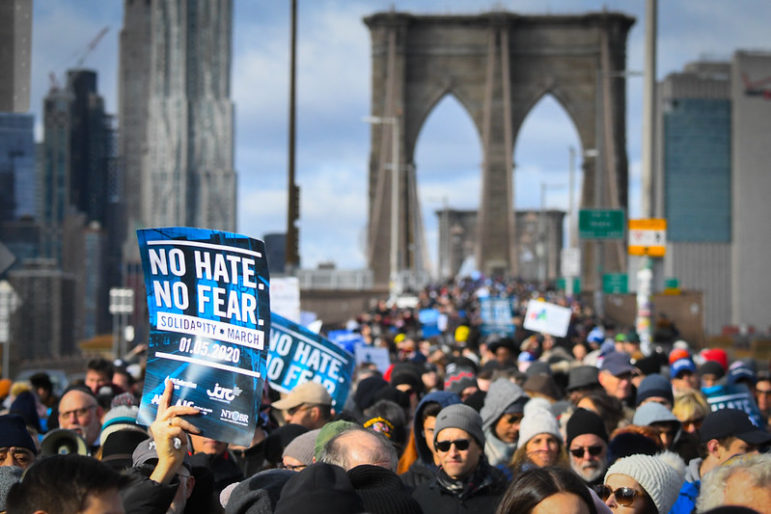
Michael Appleton/Mayoral Photography Office
Thousands of participants in the March Against Anti-Semitism on the Brooklyn Bridge on Sunday, January 5, 2020.It has been quiet on the hate-crimes front for a few days in New York City. The last incident to gain broad public notice occurred on January 15, when a man allegedly crafted a swastika out of flyers in a subway station. That followed weeks of multiple reports and increasing alarm over a surge of episodes, including events in Monsey and Jersey City involving extreme violence.
The events at the end of 2019 wrapped up a distressing year: Anti-Semitic hate crimes were up 26 percent over the previous 12 months. According to David Greenfield, an Orthodox Jewish leader who heads Met Council, the impact has already been felt in his community.
“As someone who has worn a yarmulke and has worn one my entire life, I have heard comments–certainly nothing that has risen to the level of an assault, but I have seen an increase of anti-Semitic remarks myself,” the former City Councilmember said. “I can tell you from speaking to folks, people are being more cautious and people are definitely a little bit more nervous about going out at night or going out alone.”
David Greenfield on the Impact of Hate Crimes
Greenfield and Deborah Lauter, the head of the city’s new Office to Prevent Hate Crimes, joined WBAI’s Max & Murphy to discuss the burst of anti-Semitic activity, its possible causes, and the ways the city is or should be responding.
“The national trends are showing across the board: There’s an increase in hate crimes across the country. So, what we’re experiencing here in New York is also an increase. That’s why my office was initiated,” Lauter said “The City Council and the mayor said, ‘Enough of us just coming together and condemning incidents after the fact. Let’s do something more long term and focus on the preventative.’”
Deborah Lauter on NYC’s Response
Greenfield criticized government generally for not doing
enough to respond to the spike in crimes. Lauter noted the NYPD’s
increased patrols, the creation of her office, a new Department of
Education curriculum on tolerance and other efforts.
Both guests agreed that the 2018 bail reforms ought to be revised to permit broader pre-trial detention of people accused of hate crimes.
“When you see someone who gets arrested and should be remanded because of the history of violence towards people of a certain ethnicity whether they be Jewish, African American, Spanish, or LGBTQ and that person ends up on the street again, that is frustrating people,” Greenfield said. Lauter agreed: “Yes, I agree with the mayor that there needs to be judicial discretion and there’s clear movement to have limited carve-outs made.”
Asked what’s driving the spike in incidents, both cited multiple causes.
“There is no one root cause,” Greenfield said. “Some of them are driven by younger people where clear education or lack of education is a factor. Others are individuals who have mental health factors, including the fact that people have not been receiving proper mental health treatment. Some of them are obviously good-old-fashioned anti-Semitism.”
Lauter agreed some of the attacks may have copied earlier, high profile incidents during the spike.
“When people see how swastika graffiti has been highly publicized and when we look at the numbers, that’s really where the huge increase of the anti-Semitic incidents have been. I think it’s close to 80 percent of the incidents were swastika vandalism. Are kids and young adults seeing it and doing it?”
“Some of it is probably is tied to extremist ideology, others are tied to kids not understanding the severity of what’s behind the swastika and why it’s causing so much fear. Those two things require different approaches for dealing with it,” Lauter said.
Max & Murphy: Full Show for January 22, 2020
With
reporting by Anika Chowdhury


